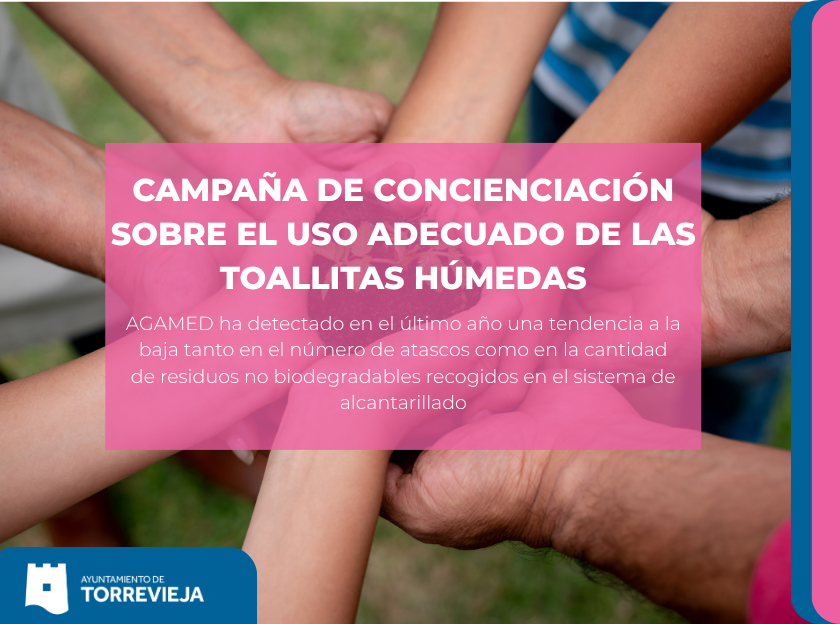Awareness Campaign on the Proper Use of Wet Wipes

The awareness campaign on the proper use of wet wipes in Torrevieja is bearing fruit, according to the latest data from AGAMED. Over the last year, the company has detected a downward trend in both the number of blockages and the amount of non-biodegradable waste collected in the sewage system.
The local wastewater treatment plant, which processed 221 tons of non-biodegradable waste last year, including wipes and sanitary products, has seen a significant reduction compared to the previous year, when 256 tons were processed. Furthermore, the number of incidents related to blockages, which currently stands at 220 cases annually, compared to 260 in the previous year, shows a positive trend that reflects a change in public habits.
This positive development is a direct result of the awareness campaigns launched jointly by the City Council and AGAMED through social media and local media. Active collaboration with local associations, especially the hospitality industry, has been instrumental in amplifying the message and raising awareness about the importance of responsible use of the sanitation system.
Although the so-called "Wipe Monster" continues to pose a significant challenge to sanitation infrastructure, with an economic impact resulting in a 15% maintenance cost overrun, the data confirm that the awareness-raising message is gradually reaching Torrevieja residents. These positive results reinforce AGAMED's commitment to environmental education and demonstrate that citizen collaboration is essential for the sustainable management of sanitation infrastructure.
Finally, it's worth remembering that, in addition to these elements, people flush other products down the toilet that cause serious problems in the wastewater treatment process and affect the environment, such as paints, oils, detergents, soaps, medications, and pesticides, among others.